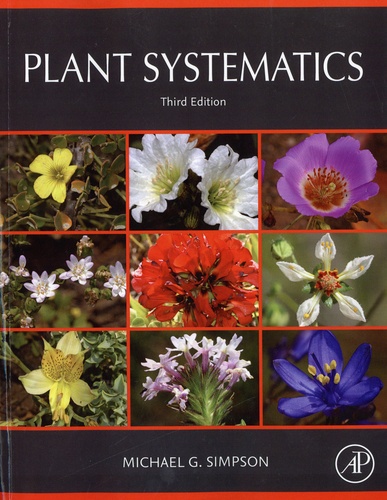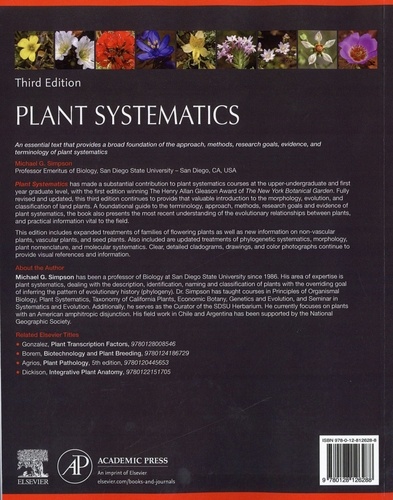En cours de chargement...
Plant Systematics has made a substantial contribution to plant systematics courses at the upper-undergraduate and first year graduate level, with the first edition winning The Henry Allan Gleason Award of The New York Botanical Garden. Fully revised and updated, this third edition continues to provide that valuable introduction to the morphology, evolution, and classification of land plants. A foundational guide to the terminology, approach, methods, research goals and evidence of plant systematics, the book also presents the most recent understanding of the evolutionary relationships between plants, and practical information vital to the field.
This edition includes expanded treatments of families of flowering plants as well as new information on non-vascular plants, vascular plants, and seed plants. Also included are updated treatments of phylogenetic systematics, morphology, plant nomenclature, and molecular systematics. Clear, detailed cladograms, drawings, and color photographs continue to provide visual references and information.







